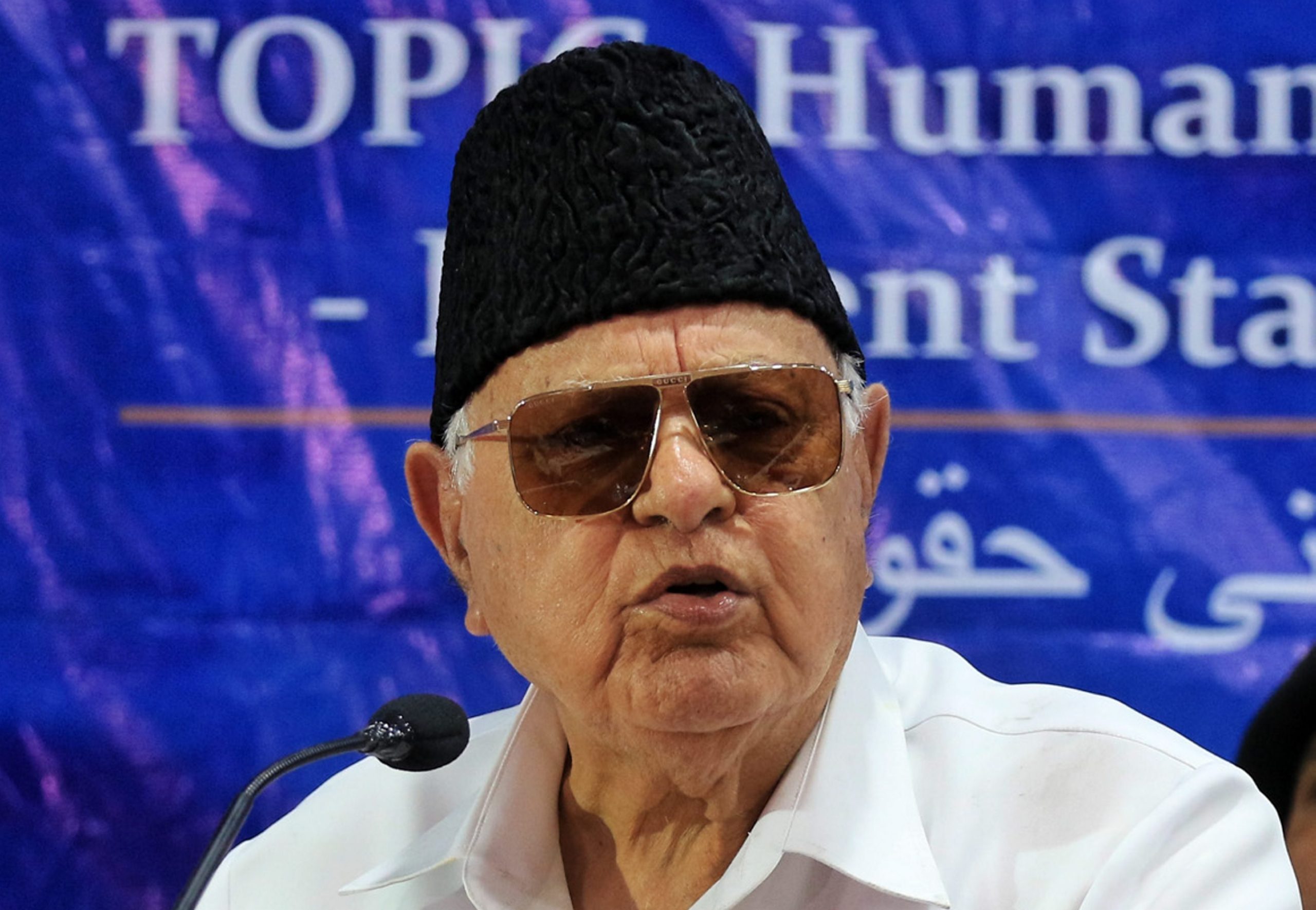Jammu, Dec 9: National Conference leader Farooq Abdullah expressed disappointment on Monday regarding the Jammu Smart City project, highlighting a lack of tangible development and essential infrastructure in the area.
He emphasized the need to restore communal harmony in Jammu and Kashmir by bringing back the Darbar Move.
“I feel embarrassed when I see the so-called smart city. To me, this does not qualify as a smart city. I cannot see any functioning lights anywhere. What kind of smart city is this?” he questioned reporters.
During a late-night visit to Raghunath Bazaar, Abdullah criticized the execution of the Jammu Smart City initiative. “Just renaming it as a smart city doesn’t make it one. It requires actual development to justify that title.”
He also pointed out that locals have been patiently tolerating these ongoing issues.
“The people here tend to endure rather than protest; they quietly put up with everything,” said the former chief minister of the previous state.
Extending his greetings for the upcoming New Year, Abdullah highlighted the significance of snowfall and rainfall for agriculture.
“I wish everyone a happy new year. May God bless us with a year rich in snowfall and rain, which is vital for our crops. The amounts of snow and rain have significantly decreased. Let’s pray for divine blessings in this regard,” he remarked.
Abdullah also discussed the cultural and communal importance of the Darbar Move, stating, “The Darbar Move was more than just administrative logistics; it fostered a bond between the Muslims of Kashmir and the Hindus of Jammu. We must revive this relationship and promote harmony.”
The Darbar Move refers to the biannual transfer of the state secretariat and other government offices from Srinagar to Jammu, a practice initiated in 1872 during Maharaja Ranbir Singh’s reign. It continued until 2020, when the then Union Territory administration decided to keep state secretariats in both cities.
Abdullah voiced his concern over the state of local businesses, noting the prevalence of empty shops and a lack of customers. “I’ve visited these shops and observed there are no buyers. What is the reason behind this?”
Urging for communal respect and harmony, he added, “We pray to God to restore these bonds so we can all live with dignity.”
In response to comments from People’s Democratic Party (PDP) leader Mehbooba Mufti’s daughter, Iltija Mufti, who referred to Hindutva as a “disease,” Abdullah stated, “What Mufti Sahiba chooses to say is her own business as a leader. I can’t respond to that; her statements are her concern.”
Iltija Mufti stirred controversy by alleging that Hindutva was tarnishing Hinduism and leading to the persecution of minorities, especially Muslims, also claiming that the BJP exploited Hindutva to solidify its electoral base. (Agencies)


Leave a Reply